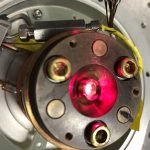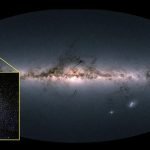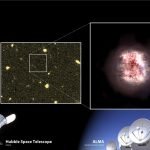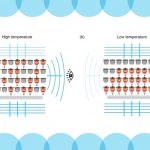Scientists capture red supergiant’s death throes for the first time
For the first time ever, astronomers have imaged in real time the dramatic end to a red supergiant’s life — watching the massive star’s...
Scientists transform materials with laser light
Researchers have figured out a way to use lasers to alter materials without the creation of damaging heat.
Imagine windows that can easily transform into...
Scientists find way to convert invisible infrared light into visible light
Detecting light beyond the visible red range of our eyes is hard to do, because infrared light carries so little energy compared to ambient...
Scientists find a strangely massive black hole in Milky Way satellite galaxy
Astronomers at The University of Texas at Austin’s McDonald Observatory have discovered an unusually massive black hole at the heart of one of the...
In the quantum realm, not even time flows as you might expect
New study shows the boundary between time moving forward and backward may blur in quantum mechanics.
A team of physicists at the Universities of Bristol,...
This jelly-like material could survive being run over by a car
Researchers have developed a jelly-like material that can withstand the equivalent of an elephant standing on it, and completely recover to its original shape,...
One in five galaxies in the early universe could still be hidden behind cosmic...
Astronomers at the University of Copenhagen’s Cosmic Dawn Center have discovered two previously invisible galaxies 29 billion light-years away.
Their discovery suggests that up...
X-rays may save Henry VIII’s revered ship, the Mary Rose
The crown jewel of Henry VIII’s 16th century fleet was its flagship, the venerable Mary Rose.
More than 500 years after its launch, the vessel...
How ultracold, superdense atoms become invisible
An atom’s electrons are arranged in energy shells.
Like concertgoers in an arena, each electron occupies a single chair and cannot drop to a lower...
New breakthrough could help calculate the likelihood of worst-case scenarios
Quick—if you had to guess, what would you think is most likely to end all life on Earth: a meteor strike, climate change or...










